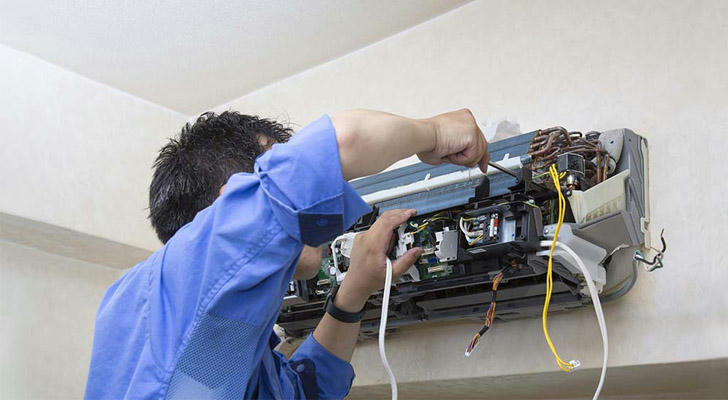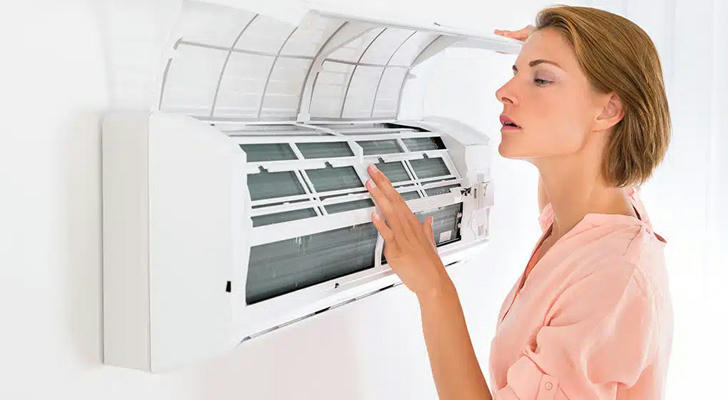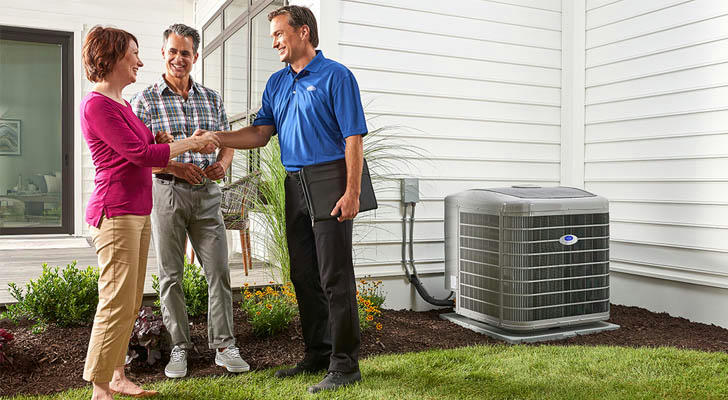Air Conditioning Maintenance and Repair: Practical Tips for Extending the Life of Your AC
Air conditioning has become an essential appliance in modern homes and workplaces. Whether it’s the hot summer or cold winter, air conditioners provide a comfortable indoor environment. However, many people overlook regular maintenance and repair of their air conditioners, which can lead to reduced performance or premature breakdowns. This article shares practical air conditioning maintenance and repair tips to help extend the lifespan of your AC and improve its efficiency.

Basic Structure and Working Principle of Air Conditioners
Air conditioners consist of several key components, including the compressor, evaporator, condenser, and expansion valve. They work by compressing gas and using the evaporation and condensation processes of refrigerants to regulate indoor temperature. While the principle behind air conditioning seems simple, the coordinated functioning of all components is essential for optimal performance. Any malfunction in one part can impact the entire system.
The Importance of Air Conditioning Maintenance and Repair
After prolonged use, air conditioners can accumulate dust, dirt, and bacteria, which not only affect the cooling performance but also impact indoor air quality, potentially causing health issues. Regular maintenance and repair ensure that the AC runs efficiently, reduces the chance of malfunction, and extends its lifespan. A well-maintained air conditioner not only saves energy but also improves the quality of air indoors.

Practical Tips for Air Conditioning Maintenance and Repair
1.Regularly Clean the Air Filter The air filter in your air conditioner is responsible for filtering dust, dirt, and microorganisms from the air. If the filter is not cleaned regularly, it can become clogged, leading to poor airflow and placing extra strain on the AC, thus reducing cooling and heating efficiency. It is recommended to check and clean the filter every 1-2 months. If the AC is not used for an extended period, it's also a good idea to clean the filter to avoid dust accumulation.
Cleaning Method:
• Turn off the AC and unplug it.
• Remove the filter and rinse it under running water. For stubborn dirt, use a soft brush to gently scrub.
• If there’s significant dirt, you can use a mild detergent to clean it. Avoid using harsh chemicals.
• After cleaning, let the filter dry completely before reinstalling it.
2.Check the Condenser and Evaporator Coils The condenser and evaporator are essential parts of the cooling system. Over time, they can accumulate dust and dirt, reducing heat exchange efficiency. It’s recommended to have them checked and cleaned at least once a year.
Cleaning Method:
• Turn off the AC and disconnect the power.
• Inspect the condenser for any debris and clean it.
• Use a soft brush to remove dust from the evaporator and condenser coils.
• If needed, use a specialized air conditioner cleaner to wash the coils.
3.Check the Refrigerant Levels Refrigerant is crucial for the cooling process. If the refrigerant is low, the AC will not cool effectively. To check the refrigerant levels, it’s best to contact a professional technician, as handling refrigerant requires specialized skills. If you notice poor cooling performance, it might indicate a refrigerant leak, and it’s essential to have it checked and recharged by a professional.
4.Inspect the Electrical Circuit and Compressor The electrical system and compressor are vital components of the air conditioner. If there’s an issue with the electrical system or compressor, the AC won’t function properly. Regular inspection can help identify potential issues, such as electrical overload or faulty connections, especially during peak usage seasons.
5.Ensure Proper Ventilation and Cleanliness Around the AC The working environment of the air conditioner greatly affects its efficiency. Make sure there’s no obstruction around the AC, especially near the condenser unit, which requires proper airflow for efficient cooling. Items, plants, or furniture blocking the AC’s airflow can cause poor heat dissipation and affect its performance. Regularly clean the area surrounding the AC and ensure adequate ventilation.
6.Schedule Professional Maintenance Even for homeowners, it’s a good idea to have a professional technician perform a thorough check-up of your air conditioner. Technicians typically inspect all parts of the system, ensure everything is in working order, and carry out necessary repairs. It’s recommended to have this done once a year, especially before peak cooling or heating seasons, to ensure the system is in optimal condition.

How to Spot Early Signs of Air Conditioner Issues
1.Poor Cooling Performance
If the AC runs for long periods without effectively cooling the room, it could be due to a clogged filter, dirty condenser coils, or a refrigerant leak. Clean the filter and check the cooling system to ensure the AC is functioning properly.
2.Unusual Noises
If the air conditioner makes strange noises, it might indicate loose parts or mechanical issues. Check if any debris is obstructing the system, or contact a professional technician for a thorough inspection.
3.Unpleasant Odors
If your AC emits unpleasant smells, it could be due to mold or bacteria buildup in the filter or evaporator. Regularly clean these components to maintain fresh air quality.
Conclusion
Air conditioning is an essential household appliance that requires regular maintenance and repair to perform optimally. By cleaning the filter, checking the condenser and evaporator, inspecting the refrigerant levels, and ensuring proper ventilation, you can extend the life of your AC and improve its performance. Regular professional maintenance also plays a key role in keeping your AC running smoothly. With these practical tips, you can ensure that your air conditioner provides long-lasting comfort and efficiency.
